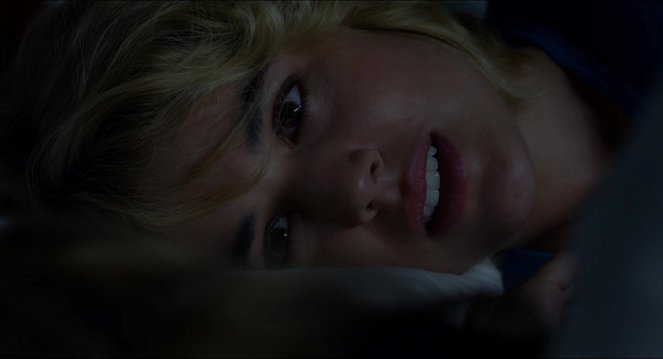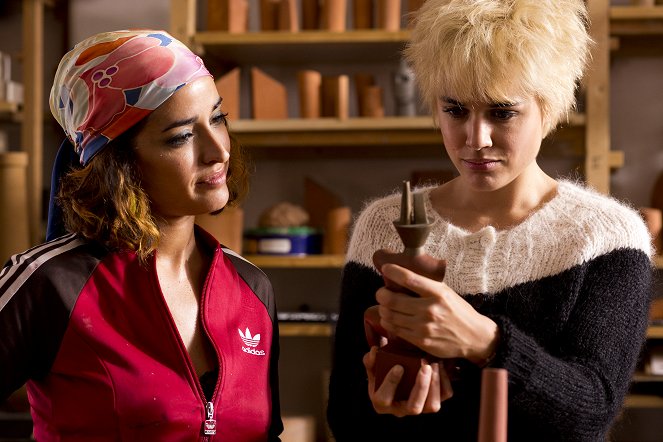Rendező:
Pedro AlmodóvarForgatókönyvíró:
Pedro AlmodóvarOperatőr:
Jean-Claude LarrieuZeneszerző:
Alberto IglesiasSzereplők:
Adriana Ugarte, Michelle Jenner, Darío Grandinetti, Emma Suárez, Rossy de Palma, Inma Cuesta, Nathalie Poza, Pilar Castro, Susi Sánchez, Daniel Grao (több)Tartalmak(1)
Julieta Madridban él lányával, Antíával. Mindketten rettenetesen szenvednek az apa, Xoan elvesztésétől. S az idő, ahelyett, hogy begyógyítaná a sebeket, csak eltávolítja egymástól a két nőt. 18. születésnapja után Antía szó nélkül lelép otthonról, magára hagyva anyját. Julieta kétségbeesetten próbálja megtalálni a lányát, ám egyre csak azzal szembesül, milyen keveset is tudott róla idáig. (Cinetel)
(több)Videók (9)
Recenziók (5)
I wasn't too impressed with the film at first, but then the story drew me in. Before I knew it, the end credits rolled, and I realized how much I'd enjoyed it. Almodóvar just knows how to make films about family relationships, and I certainly wouldn't mind watching Julieta again.
()
Pedro Almodóvar didn’t really convince me of his great talent for quality Spanish dramas with this movie. On the contrary, I felt as if I were looking at Spanish chick flick. On the other hand, he convinced me again that he has no shortage of beautiful Spanish women. Adriana Ugarte immediately charmed me, and I didn’t even know about her before.
()
Almodovar never disappoints, in 2016 he offers a splendid drama with a light touch of thriller. And this time he didn't choose just a simple template - a short story by a Nobel Prize laureate in literature cannot be handled by just anyone in a film. Traditionally, he managed to select charming cast, in Spain it's probably damn easy, every second Spanish woman has a charm, but they also need to know how to act. The story is excellently structured, keeping the viewer in a pleasant suspense, wondering how it will develop and mainly how it will end. And this type of ending is not meant for everyone. In conclusion, I would highlight the colorful creativity and beautiful music.
()
In the film Julieta, Pedro Almodóvar proves what he excels at in most of his films, i.e., that he can work wonderfully with actresses and bring out the best in them. The story starts off well, or rather dramatically, but its gradual development felt more like an effort to showcase how good the actresses are, but not much else.
()
Unfortunately, the most fundamental and interesting thing - the relationship between Juliet's mother and her daughter - is played down in the film in favor of other plot twists and turns. The reasoning offered is that Almodóvar freely adapted three short stories, one of which deals with the main protagonist’s affair on a train and the other with her visit to her parents, and only in the third story is her relationship with her daughter resolved, but only from the mother's point of view, regardless to the lack of space for its comprehensive underpinning. At the same time, the inclusion of the daughter's perspective, which is fundamentally missing in the film, would definitely be enriching, at least in terms of insight into her psychological motivations and inner motives. In this way the viewer can enjoy an artfully made film with a relatively strong story about ancient wrongs, the pain of a mother whose daughter does not want to know her, and the unfortunate decision to suffocate problems and remorse rather than talk about them openly, without being able to help feeling at the same time that something that's left unsaid is missing. Both actresses sharing the lead role are so good that their performances can almost cover up how the film tries to look intricate and clever, but at the same time it contains a lot of holes in its storytelling and unnecessarily shifts its attention to everything possible, but not to what should form its basis.
()




Hirdetés